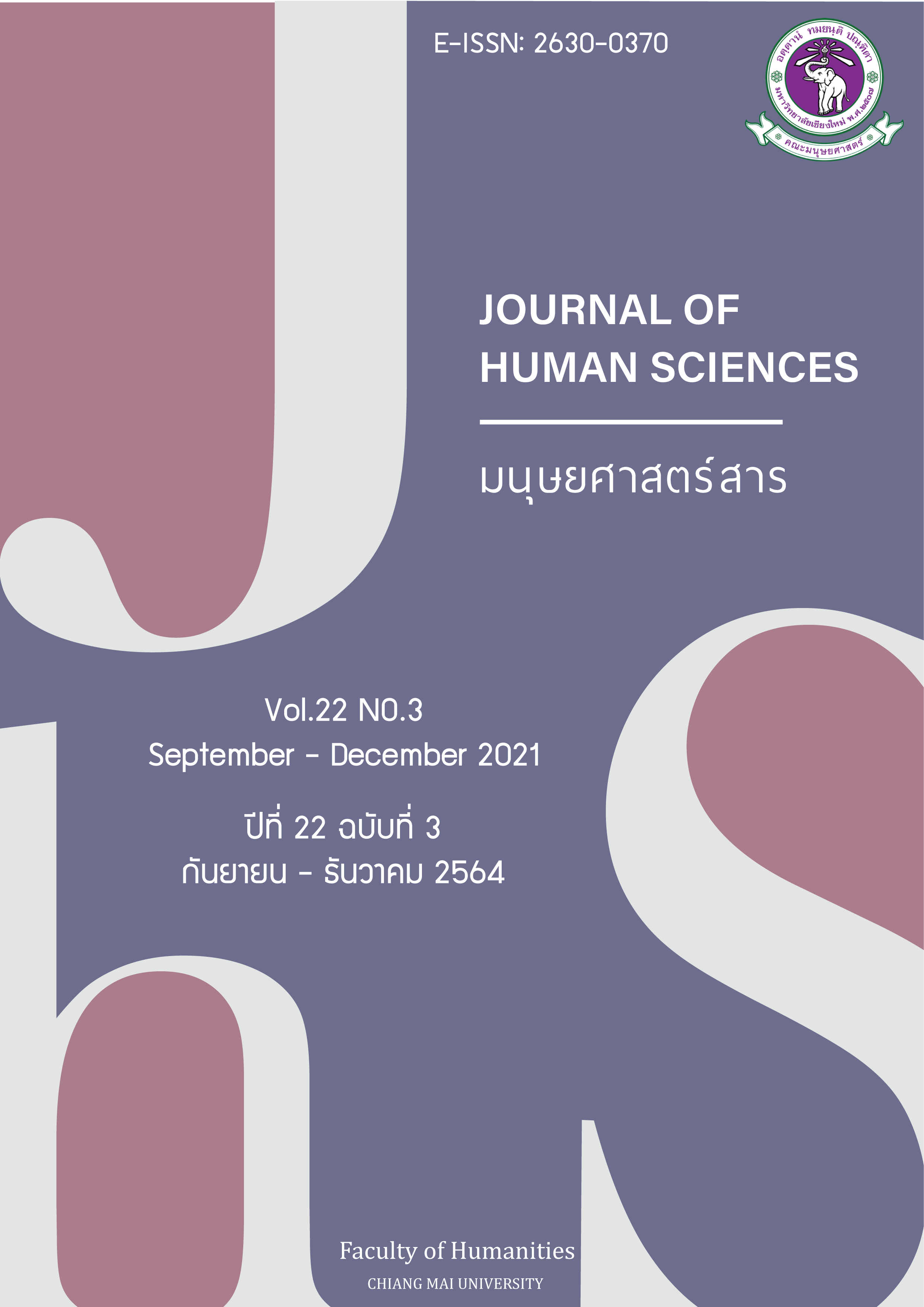ประสบการณ์เผชิญอุปสรรคและการซึมซับการตีตราสู่ตนเองของคนตาบอดที่ทำงานในองค์กร
Main Article Content
บทคัดย่อ
งานวิจัยนี้มีวัตถุประสงค์เพื่อศึกษาประสบการณ์เกี่ยวกับผลกระทบทางจิตใจของคนตาบอดเมื่อเผชิญอุปสรรคการทำงานในองค์กร ใช้ระเบียบวิธีวิจัยคุณภาพแนววิเคราะห์เชิงปรากฏการณ์วิทยาแบบตีความ เก็บข้อมูลด้วยวิธีสัมภาษณ์เชิงลึกแบบกึ่งโครงสร้าง ผู้เข้าร่วมวิจัยเป็นคนตาบอดที่มีประสบการณ์ทำงานในองค์กรร่วมกับคนทั่วไปจำนวน 6 ราย อายุอยู่ระหว่าง 34-52 ปี วุฒิการศึกษามัธยมศึกษาปีที่ 6 ถึงระดับดุษฎีบัณฑิต ผลการวิจัยพบ 2 ประเด็นหลักที่สำคัญ ได้แก่ 1) ข้อจำกัดของการทำงานในองค์กร ประกอบด้วย ทำงานไม่ได้เพราะไร้ระบบที่เอื้อต่อการทำงาน ไม่อาจเดินไปไหนมาไหนได้อิสระ ถูกปิดกั้นการมีส่วนร่วม และอึดอัดจากการถูกจำกัดผลตอบแทนและความก้าวหน้าในอาชีพ 2) การซึมซับการตีตราสู่ตนเอง ประกอบด้วย ความด้อยค่า ความรู้สึกเป็นภาระ และการเจียมตัวในความพิการผลการวิจัยในครั้งนี้ทำให้ได้ข้อมูลในมุมมองของคนตาบอดในบริบทของการทำงาน เป็นประโยชน์ต่อการออกแบบบริการปรึกษา ตลอดจนเตรียมพร้อมให้คนตาบอดกับคนในองค์กรทำงานร่วมกันได้อย่างราบรื่น ยืนอยู่บนพื้นฐานแห่งความเข้าใจระหว่างกันสืบไป
Article Details

อนุญาตภายใต้เงื่อนไข Creative Commons Attribution-NonCommercial-NoDerivatives 4.0 International License.
เอกสารอ้างอิง
Chen, R. K., Blankenship, C. J., Austin, B. S., Cantu, V. C., & Kotbungkair, W. (2016). Hiring of people with disabilities: Perceptions of Hispanic small business owners. Journal of Vocational Rehabilitation, 45, 185–196.
Department of Employment, Ministry of Labour, and Workability Thailand. (2018). A Report Summary on 2017 Persons with Disabilities' Hiring Rate and Directions for 2018 Strategies Developments. Retrieved on 15 January 2021 from http://nlrc.mol.go.th/research/SHZRVY0.pdf
Empowerment of Persons With Disabilities Act, B.E. 2550 (2007). Retrieved on 15 January 2021 from http://law.m-society.go.th/law2016/law/view/551
Gilbride, D., Stensrud, R., Ehlers, C., Evans, E., & Peterson, C. (2000). Employers’ attitudes toward hiring persons with disabilities and vocational rehabilitation services. Journal of Rehabilitation, 66, 17–23.
Kerddaen, Q. (2018). The lived experience of blind street musician in Thailand. Thesis of Doctor of Philosophy. The University of New South Wales.
Ægisdóttir, S., Leach, M. M., Romano, J. L., Tomlinson-Clarke, S., & Canel-Çınarbaş, D. (2019). Sociopolitical, cultural, and historical contexts that influence counseling practice in four
countries. The Counseling Psychologist, 47(4), 578-607. https://doi.org/10.1177/0011000019883321
Leonard, R. (2002). Predictors of job-seeking behavior among persons with visual impairments. Journal of Visual Impairment & Blindness, 96(9), 635-644.
McDonnall, M. C. (2018). Factors associated with employer hiring decisions regarding people who are blind or have low vision. Journal of Visual Impairment & Blindness, 112(2), 197-203.
Noosorn, N., Markmee, P., Butmee, T., and Boonda, P. (2013). Factors Affecting the Employment of Person with Disabilities and Invalidity under Social Security Scheme. Faculty of Public Health, Naresuan University.
O'Day, B. (1999). Employment barriers for people with visual impairments. Journal of Visual Impairment & Blindness, 93(10), 627-642.
Roessler, R. T. (2002). Improving job tenure outcomes for people with disabilities: The 3M model. Rehabilitation Counseling Bulletin, 45(4), 207-212.
Smith, J. A., & Osborn, M. (2004). Interpretative phenomenological analysis. Doing social psychology research, 229-254.
Thomas, C. (2007). Sociologies of disability and illness: Contested ideas in disability studies and medical sociology. Macmillan International Higher Education.
Williams, T. K. (2012). Understanding internalized oppression: A theoretical conceptualization of internalized subordination. Thesis of Doctor of Education. The University of Massachusetts Amherst.
Wolffe, K. E., Ajuwon, P. M., & Kelly, S. M. (2013). Working with Visual Impairment in Nigeria: A Qualitative Look at Employment Status. Journal of Visual Impairment & Blindness, 107(6), 425–436.


